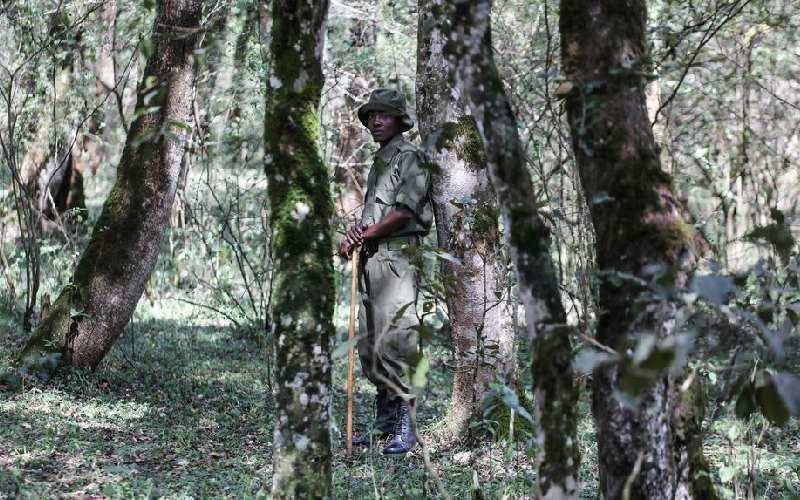×
The Standard e-Paper
Smart Minds Choose Us

A scout from Oloolua Community Forest Association is photographed in the Oloolua Forest near Nairobi. February 21, 2022. [Reuters]
Parliamentarians are proposing amending Kenya's forest law to make it easier to change the borders of protected areas, a move activists warn could adversely affect wildlife and the environment in Kenya.